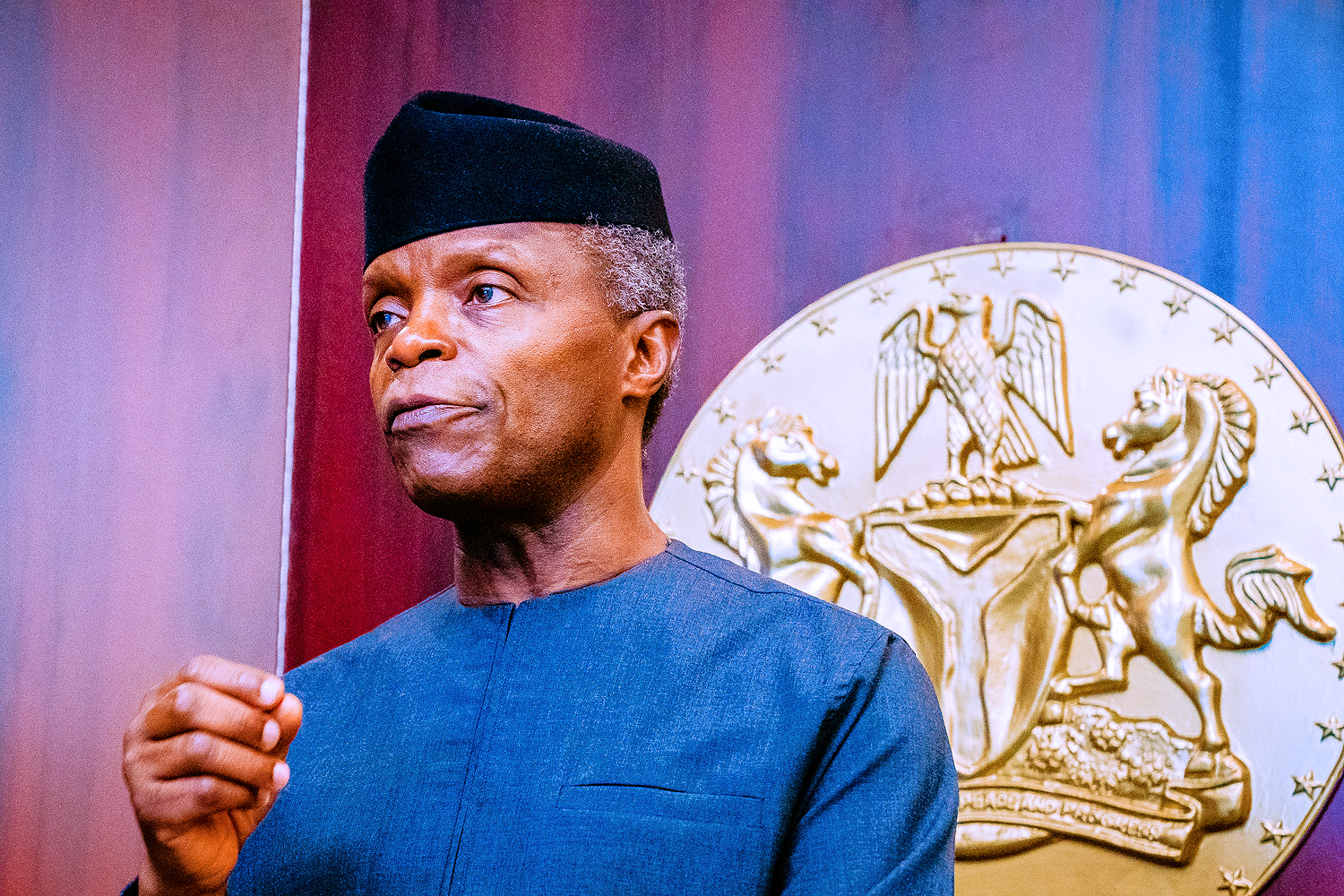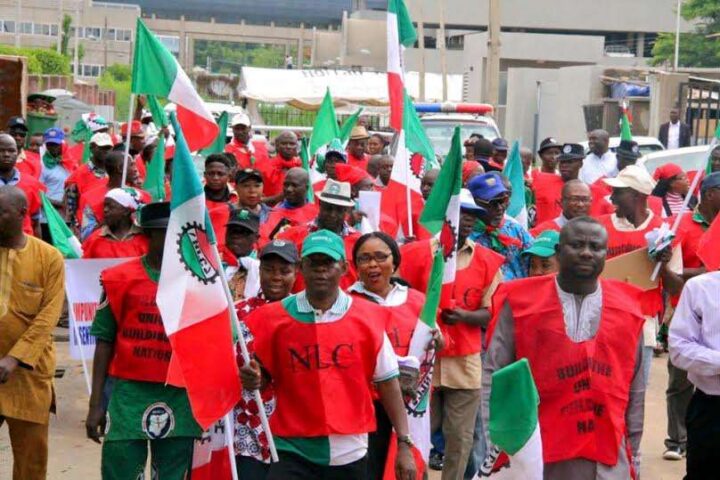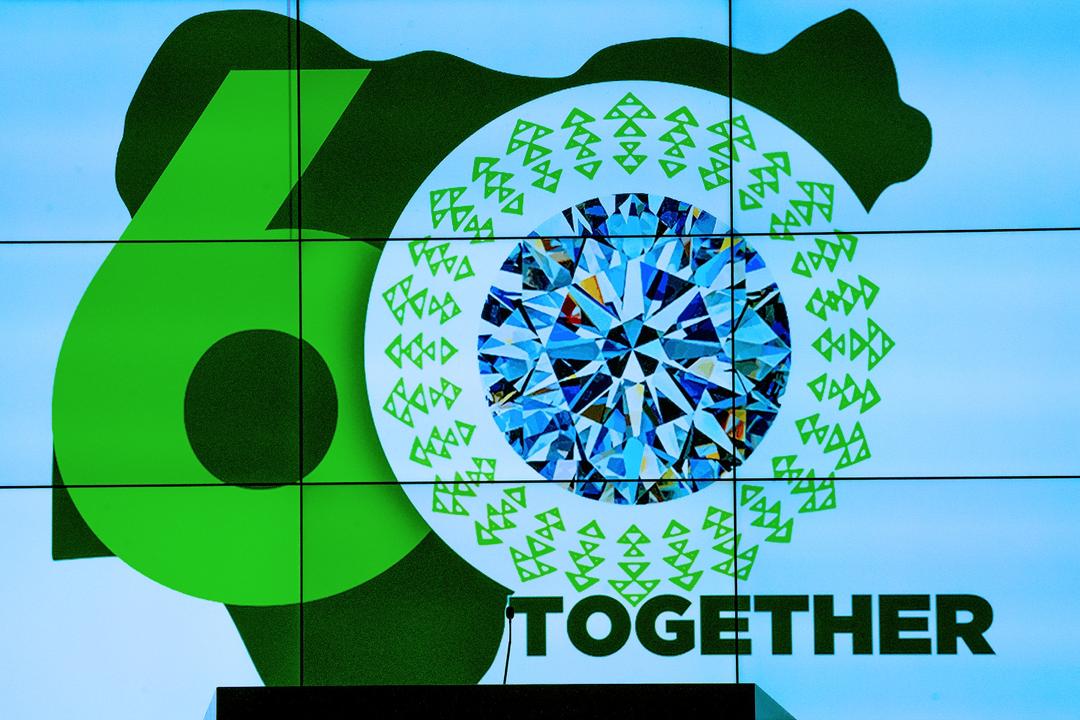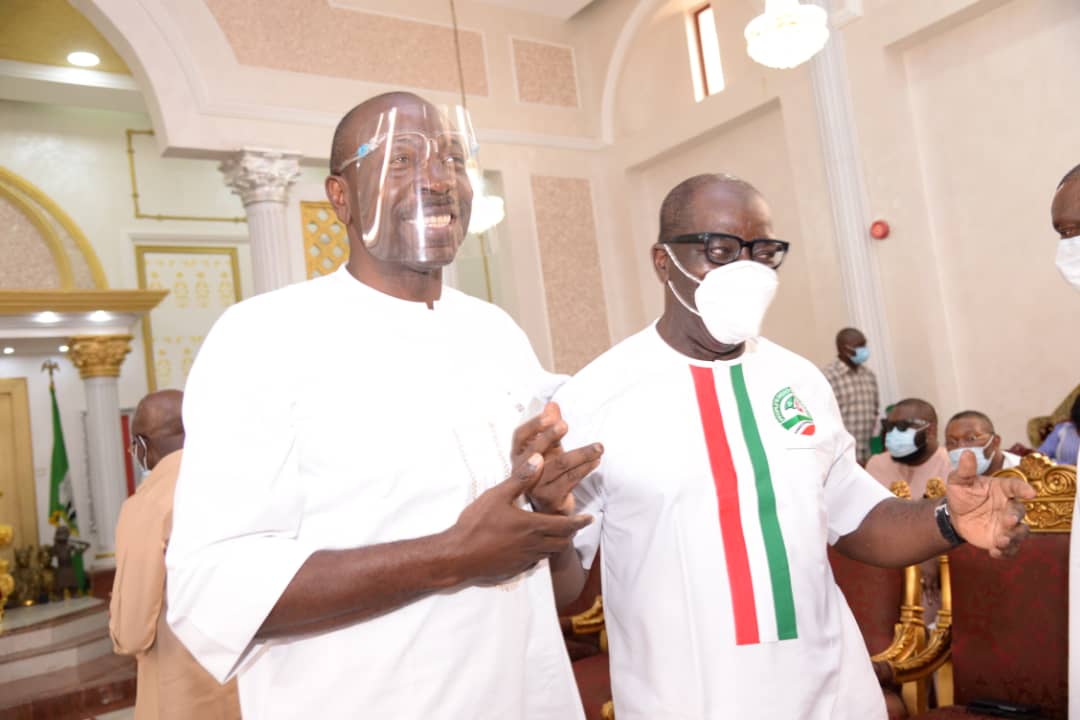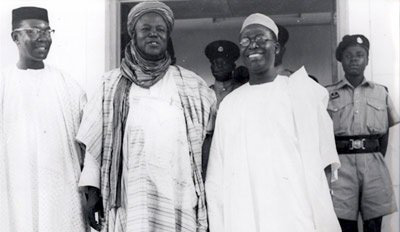There is hardly any homogeneity between khaki (military) and Agbada (civilian). Which is why anyone with a descent respect for, and recollection of the country’s history will confess that the relationship has not fared better than a poisoned chalice. Premised on the foregoing, it will not be farfetched to suggest that apart from being initially nonplussed about the coming together of Gen. Muhammadu Buhari (rtd) and Prof. Yemi Osinbajo (SAN) to run for elections as president and vice president of Nigeria, quite a number of people may have gotten sufficiently relaxed by the cooling thoughts that the SAN is able to introduce malleable manageability of the rule of law to the military adroitness or even stubbornness of the general.
So, when things happen in our nation now the first question they ask is: Where is Osinbajo? The people expect him to do magic. I also expect him to. But we always forget that he is not the Minister for Justice and Attorney-General of the federation. He is a professional enjoying a higher calling in the political ecosystem and may even be as trapped as we are or even more trapped. But you can’t blame us for expecting too much from a government who promised us the stars!
Since the self-inflicted controversy of the 6th edition of the Nigeria Broadcasting Code by the National Broadcasting Commission (NBC) with the remote imprimatur of the Minister of Information and Culture, Alhaji Lai Mohammed, the same question has been asked by some concerned stakeholders; perhaps for two reasons: the first being that he is the learned academic at the top level of government, so matters of erudition should stop on his table, and the second being that he is from the same source like Mohammed – the Bola Tinubu stable – and should therefore be able to put a leash on his former colleague.
We don’t have to wait forever. Last week he spoke, according to media reports. During a session with Nick Clegg, Facebook Vice President, Policy and Communications, Osinbajo dropped the hint that the controversies generated by the new Code would mean that the government has to revisit the matter as urgently as possible. The life circle of the Code is about four years but subject to review within the period. Moreover, the Code is an industry document that has to capture the aspirations and expectations of industry operators. It is in Osinbajo’s place to assure the local and international community that the Nigerian government has not gone to sleep while issues that can affect performance in the business environment are allowed to fester. Prominent among the issues are the regulation of content exclusivity and N5m fine for hate speech instead of N500, 000, while a third, which is extraneous but very subterranean, is the independence of the regulatory agency.
Advertisement
“Basically, it says if you have a licensed product for TV, you are expected to share it with other platforms. It’s one which I understand the argument of those who say this is a violation of copyright and intellectual property, which is a very strong point and this is why we have to take a second look at it and see whether there are ways of moderating it to be more acceptable so as not to stifle the work of very hard working creative people,” The Eagle Online reports Osinbajo as saying.
It will be germane to add here that even within the NBC, there was a split right through the middle. The Board headed by former Communications Minister, AlhajiIlkra Aliyu Bilbis joined the fray when it accused the Minister, Alhaji Mohammed, of being the one pulling all the strings and thus deny the regulator the opportunity to function independently. Unfortunately, that voice has been muted because the NBC Act ascribes very little strength and responsibilities to the Board.
Let’s try and make some meaning out of this. Under Composition of the Board, the Act says: (4) The chairman and members of the of the Commission shall be part-time members. Under Tenure of office, etc. (1) The chairman and other members of the Commission shall hold office for three years renewable for one further period of three years only.
Advertisement
The lesson arising therefrom is that the NBC is not set up to have a stable Board. Three years term for the Board and even on part-time basis is thin and fragile and can expose the members to the almightiness of a minister made supremo by the Act. Only a politician with the heart of gold will not exploit such latitude, and they are not many in this dispensation.
Another sister agency also established in 1992, like the NBC, the Nigerian Communications Commission (NCC) doesn’t endure such fickleness. The tenure of the 9-man Board of Commissioners is five years and this is renewable for another term by the President. There are two executive commissioners whose appointment are permanent along with the chief executive or executive vice chairman. This has guaranteed some level of stability in the Board while also giving untrammeled opportunity to the executive commissioners to contribute to the development of the telecommunications industry without a busy-body minister breathing over their shoulders, especially if they are picked on merit, based on sound knowledge of the sector.
Here is a point of emphasis. If the government mulls a revisit of the Code, it should also consider as priority a total cleanup of the entire Act in order to strengthen it for performance. As it is the document is too weak for a landmark performance in an industry in perpetual motion because of new technologies.
Let me also quickly submit here that the broadcast industry at the moment is too fractured for any meaningful growth and development. There is the Ministry and the NBC on one hand and there are others scrambling to be heard; they include: Broadcasting Organization of Nigerian (BON), Independent Broadcasting Association of Nigeria (IBAN), Cable TV Association of Nigeria, The Association of Licensed STB Manufacturers of Nigeria (STBMAN), and a few others not listed here.
Advertisement
There are so many stakeholders in the industry with disparate voices and variegated views of their sector. It is my humble suggestion that their voices and views be considered and harmonized in order to build strength for the industry. I am particularly troubled by a document released by the Cable TV Operators whose definition of exclusivity, in summary, is monopoly practice to exclude local cable TV operators from the industry and, in fact, completely obliterate them even as subscribers are oppressed with convoluting subscription rates. While trying to reinforce the argument that what is stated in Article 6. 2.5 in the new Code is not really new, a voice emotionally told this writer that local operators have been routed from the cable TV sector and really need to be given a whiff of life by the government.
I am used to these stories. However, the truth is that something needs to be done about the broadcast industry especially the DSTV and Cable TV services. This demands that Prof. Osinbajo moves with speed to stem the distrust and hemorrhage. There has to be peace for the industry to prosper. There is something that is not right at the moment. I am suggesting that to mark the beginning of a détente the regulator should call for a big stakeholders meeting where the various parties will be encouraged to canvass their positions meaningfully and also make suggestions. The cable TV operators are too infinitesimal in their approach to business operations in an industry that guzzles cash. While suggesting they change their approach, it is the responsibility of government to device very creative ways of supporting their operations and, for once, encourage Nigerian business entities to grow into big businesses and strong groups. While we have always trumpeted the strength of our economy, which is smoke that evaporates in the face of reality, it is sometimes important to endure the insipidity of a humble pie and find out how other African countries are doing it, sending businesses into other territories including ours, while green-eyed, we complain bitterly of internal colonization.
The fight for dominance in any business sector would usually hurt the weak and also the imperially positioned. While the fight is on, all parties bleed, there is atrophy and the returns grow anemic in the record books. For instance, while Uber China devoted a hefty sum of $1bn annually to fight its competition, DidiChuxing, the coming together of the two organizations in 2016 created a deal of $35bn. My humble appeal is that operators of this genre of broadcasting should not see treat or death in the eyes of a competitor but should look well and closely enough to see advantage in those shrewd eyes that can create a big industry and generous returns. And also remember, it makes great sense to have a small part of a big business that is doing well than to have a whole business burdened by inefficiency and crippling debt.
Okoh Aihe writes from Abuja
Advertisement
Advertisement
Views expressed by contributors are strictly personal and not of TheCable.

